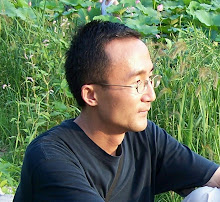I guess that foreign media's questioning about the quietness in all three protest zones in Beijing, which signifies the repressiveness of the authority, did have some effects. At least, the municipal PSB held a press conference, so we know that the number of applications for protests has totaled 77 since August 1.
Xinhua's report says issues like labour disputes, medicare disputes and welfare are involved in those applications, and they have been turned down 'because the problems those applicants contended for were properly addressed by relevant authorities or departments through consultations'.
No more details, but a story from IHT provides a glimpse on how difficult it is for an applicant to get through the procedure. I've read the adventure of NYT's columnist Nicholas Kristof the day before, but the one appeared on IHT is quite special since the protagonist is not a local resident but from Heilongjiang, a northeastern province of China. Gao's story is heart wrenching; the problem however, is complex. Unless he obtains the support at the local level, either through lawyers or through local media, his problem is quite impossible to solve by simply protesting in Beijing. This is really the vicious circle in China that a socially deprived person couldn't find a proper channel legally to solve his/her problem, and neither can he release the tension through local media's interference by playing the check-and-balance game or through the support from the civil society. When such a channel at the local level is blocked, people like Gao would come to Beijing and seek help. Such a mentality has its origin in the feudal era of China when the society is strictly conformed to the hierarchical structure without the respect of individual's human rights. Applying for the demonstration might be his last straw.
How typical is the case of Gao ? Among those who have applied for the protests, are there any Beijing residents? Reading the recent Pew's report on the Chinese attitude toward future, I'm surprised to know Chinese people's near universal optimism toward their future. I can't help wondering how relevant the case of Gao has become to those optimistic Chinese.
Putting my imagination of Mr. Gao and Mr. Optimist together, the sharp contrast is obvious. But I'm puzzled by the question who is more representative to the current China. Are they both representative? But if Mr. Gao is from the weak stratum, and not belonging to the group of Mr. Optimist, why the authority is still fearful to grant him the right to protest. Since more than 80% of Chinese are in the group of Mr. Optimist, such a solid social foundation should make the authority more confident to handle the case of Mr. Gao.
This is a typical case that harmony goes to extreme where it would damage itself. Because it's so quiet, it makes people wonder something must be wrong. And in such a wondering, something has been anticipated. And in such an anticipation, something really would happen. It's all become self-reflexive. Mr. Gao's story definitely would be ignored in the official post-Olympics narrative because it is simply against the image of the BOG it tries to project. However, this small leftover being recorded here could be a reminder afterwards, for me or for others to recuperate a bit reality when the passion for the OG runs out of its steam.
8/19/2008
Subscribe to:
Post Comments (Atom)





No comments:
Post a Comment